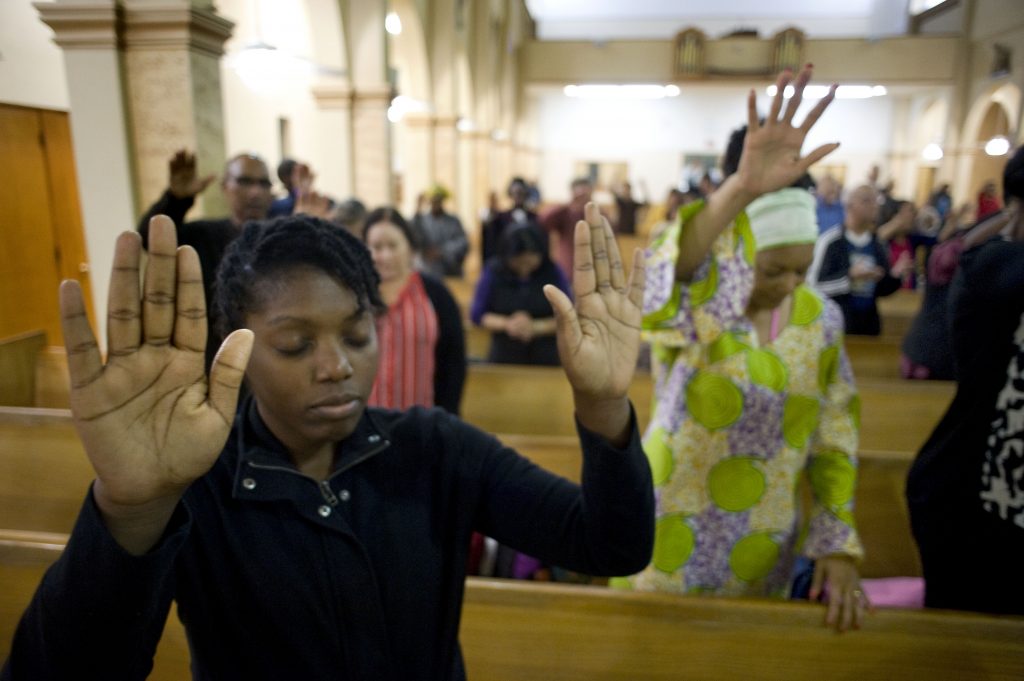The following article is adapted from an October 2020 interview with Father Joshua Johnson by theologian Shaun Blanchard, which originally appeared in Church Life Journal, the publication of Notre Dame University’s McGrath Institute for Church Life.
One question I hear quite a bit from people is, “Why are there so few Black Catholics in America?”
My response has always been, “How are there so many? How are there so many African American bishops? How are there so many African American priests? How are there so many African American religious sisters? How are there so many African American laity?”
If we examine American history over the past 400 years, we realize many of our Catholic clergy, religious, and laity betrayed Jesus Christ through their participation in the grave sin of racism, a fact that unfortunately is not often taught in our Catholic primary schools, high schools, colleges, or seminaries.
The harrowing experiences faced by Ven. Augustus Tolton, who was denied admission into every seminary in the U.S. at the time, or Ven. Henriette Delille, who was rejected by many religious orders on account of her race, are still unfamiliar to most American Catholics.
While we have come a long way, there is still much that can be done.
For example, some of our country’s own Catholic clergy, religious, and lay leaders have spent hundreds and thousands of dollars to travel hundreds and thousands of miles all over the world to share the gospel with people from other nations. This is good and true and beautiful.
However, in many cases, these same Catholics who spend so much of their money to spend two weeks in a Third World country, do not even think to share the joy of the gospel with the people of color who live within the geographical boundaries of their parish communities.
Why is that? I think one of the reasons some white Catholics fear reaching out to the people of color in their communities is because they are afraid they might hear stories from their brothers and sisters of color that might change the way they understand reality.
Until white Catholics intentionally invest in consistent relationships with people of color — through Bible studies, prayer groups, service opportunities, and friendships — they will not be able to work with people of color in reforming unjust racist practices and policies that continue to perpetuate inequality and the racial divide in the United States.
As we celebrate Black History Month, I think it is important for all of us — no matter the color of our skin — to enter into this dialogue with a sense of humility.
Even the greatest saints, who loved God very much, made mistakes in their ministry, not always thinking with the mind of Christ or using words correctly. One example of this is St. Catherine Labouré. This canonized saint made predictions that were derived from her mystical raptures that were later found to be filled with errors.
Think about it: This woman loved Jesus Christ! She worshiped God at the Holy Sacrifice of the Mass. She spent hours in prayer every day. She strived to be an obedient daughter of Holy Mother Church. And she was still wrong in her understanding!
If this saint had errors in her way of life, then we should all be open to the reality that we may be wrong, too, in the ways in which we are living out our discipleship of Jesus Christ.
Far too often I have heard well-meaning white Catholics approach racism from a place of pride and make statements like this: “I know what the real issue is for Black and Brown people!” or, “Let me tell you what their problems are and how they can fix them!” I think a better approach would be the following:
“Holy Spirit, teach me how to fast from speaking. Please help me to listen to my Black and Brown brothers and sisters in the body of Christ so I can learn from them how I can best accompany them and work with them to reform racial injustices in our local church and nation. Jesus, I trust that nothing will be impossible for you!”

